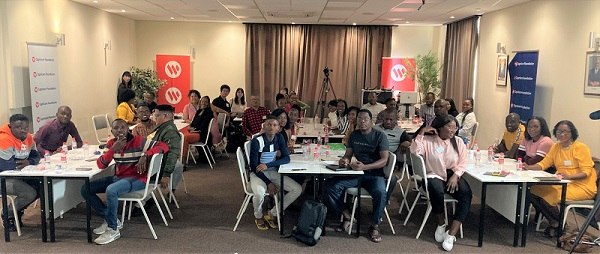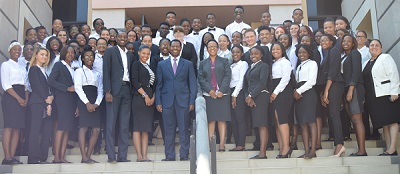
Skills upgrade for grade 4 maths teachers

By Jaenique Swartz.
A group of primary school mathematics teachers recently attended a two-day workshop, hosted by Bank Windhoek in collaboration with the Group’s CSI instrument, the Capricorn Foundation.
The training workshop was supported by the Ministry of Arts and Culture as an investment in the education of the Namibian youth.
In attendance was deputy director, Edda Bohn of the Ministry of Arts and Culture who reflected on the importance of mathematics in the children’s daily lives.
“We cannot imagine our life without mathematics, it makes human life more organized. The knowledge of numbers and their basic operation is essential to survive in today’s world,” said Bohn.
The mathematics workshop hosted 31 teachers from across the country. The workshop encouraged teachers to make use of different learning techniques in the classroom.
The presenters used a range of training techniques to make the sessions as productuve and engaging as possible, showing the teachers who new consepts can by applied successfully in teaching maths. Teaches were encouraged to be innovative in their approach and adopt learner-centric strategies.
For instance, they were shown that classroom games can be used very effectively to unlock the mysteries of mathematics for young learners. This can be amplified by flashcards and posters.
The teachers voiced several issues during the workshop which included their inability to ‘read’ the behaviour of their learners in the classroom. This query was addressed by psychologist, Dr Eunice Gonzo.
She reflected on several causes that may contribute to the behavioural issues learners face, toucing on abuse at home and moving to different learning styles for individual learners.
She furthermore encouraged teachers to preserve their mental health saying that, “Results come from you, so protect your mind with all you have.”












































